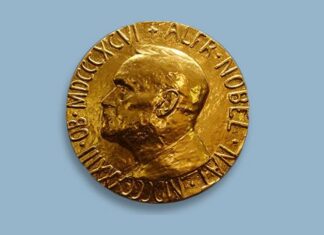A few days ago, Armenia recognized Palestine’s statehood, becoming the 143rd out of 193 United Nations member states to recognize its independence, joining powers like Russia, Spain, Norway, Turkey and China. Whether one agrees with this step or not, this was a historical decision. As frequently occurs with the actions of the Armenian government, the announcement of the decision sparked numerous discussions and speculation.
The news itself came straight from Armenia’s Foreign Ministry, which made the announcement about the recognition of Palestine two days after Prime Minister Nikol Pashinyan’s call with Turkish President Recep Tayyip Erdogan. Such timing sparked speculation that Erdogan may have urged Pashinyan to recognize Palestine’s independence, putting Armenia’s prime minister under pressure. Just hours after the statement by the Armenian Ministry of Foreign Affairs, the Turkish Foreign Ministry welcomed such a decision by the Armenian government, describing it as the right decision. This led to even more extensive discussions within Armenian society regarding the “Turkish scenario being carried out by Armenian government.” Of course, the reaction from Israel was not long in coming and it mostly resembled a threat against Armenia concerning this decision.
There were varying opinions in Armenian circles, with some welcoming the decision while others took a critical stance. There was a claim by political scientist Eduard Abrahamyan that the “Armenian government did not recognize Artsakh, which existed and was an important priority for Armenia, yet Yerevan recognizes something that does not exist in the first place and it is not a priority for the Republic of Armenia at all. There is an issue of political morality here. What kind of ‘unrecognized state’ is Palestine that rejoiced and congratulated Aliyev on the destruction of another unrecognized state, Artsakh?”
Some people, like political scientist Gevorg Melikyan, contend that “the recognition of the state of Palestine by Armenia is illogical.” He and this group of people argue that “aside from official reasons, Armenia’s decision stems from Israel’s denial of the Armenian Genocide and its military support of Azerbaijan. This raises questions about Armenia’s diplomatic strategy: straining ties with Israel while seeking closer relations with Turkey, the perpetrator of the genocide, as well as Azerbaijan, which used weapons against Armenian/Artsakh civilians without facing consequences.”
Another group of people, like politician Suren Surenyants, were greeting such a decision, noting “the decision’s correctness and [that] it is reasonable to ponder what benefits non-recognition would bring to Armenia. Given Israel’s antagonistic stance towards Armenia, aligning with supporters of Israel’s genocidal policies is disgraceful today. Even if Palestine’s recognition stemmed from the Pashinyan-Erdogan call, Armenia’s recognition of Palestine seems warranted.”
Some individuals debated the timing of such a crucial decision, contending that it would have been vital to recognize Palestine when Israel supported Azerbaijan with weapons in the 2020 war, thus helping in its victory, or assisting Baku during the aggression against the Republic of Artsakh after a prolonged blockade in 2023.








